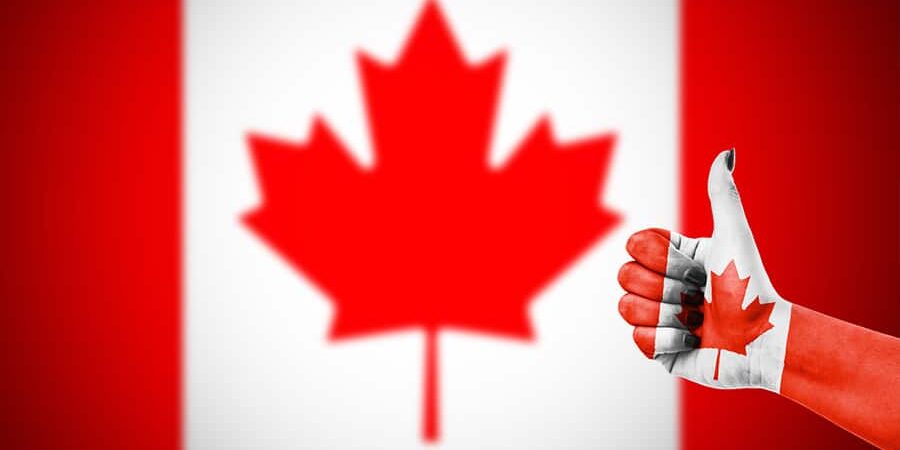Moving to Canada as a food manager holds significant promise for your career and personal development. With the guidelines below, you’ll be totally ready to go through the obstacles and opportunities of making the new destination a place for you to stay.
With the way the “Japa” trend has been going on for a couple of years now, Canada has maintained reputation as a very good place to live. Asides that, the country has different culinary view present.

Read Also: How to Generate Leads from Classified Ads Websites
Relocation to Canada as a Food Manager
Who is a Food Manager?
A food manager is a person who looks after how a place where food is made or served works.
This could be a restaurant, cafeteria, or kitchen. They make sure things run smoothly by watching over the staff, keeping track of what’s in stock.

The also make sure the food is safe to eat and clean, deciding what goes on the menu, and making sure customers are happy. Sometimes, they also do office work like planning the budget and making schedules. Basically, a food manager makes sure the place where food is made or served runs well.
Going Through the Immigration process and requirements
To go through the immigration process, you have to understand the complexity of Canada’s immigration policies is important if you want to begin your relocation journey. For all this to happen, it depends on your skills and experience.
For example, you might be eligible for the Provincial Nominee Program (PNP) or the Federal Skilled Worker Program (FSWP). This is something that would not e clear to you unless you make your own complete research. You would also need look for counseling from immigration experts to look for the most eligible immigration path for your where you currently are.
Verifying your Educational Credentials
Before starting a job as a food manager in Canada, make sure your education is approved by Canadian authorities. This means working with specific groups or organizations in Canada. By doing this, you ensure your qualifications meet Canada’s rules.
If your credentials are approved, it’s easier to get a job and have a good career in Canada’s food industry. So, it’s important to follow these steps carefully to fit into the Canadian workforce well
Going Through Different job opportunities
In Canada, lots of places need food managers, like fancy restaurants or small cafes. To find a job, you can use websites, talk to people you know who work in the industry, or ask recruitment agencies for help.
These options let you look for jobs all over Canada, so you can find one that matches what you’re good at and what you want to do. Using these tools well helps you find the right job in Canada’s big food industry.
Having an Idea of the Cos of Living
It is not news that Canada has a good life for people, and that’s why a alot of people want to be food managers in the country. But, the costs of living can change depending on where your location is in Canada.
Cost of living in big cities in Canada cost more than small towns. If you’re looking to move to Canada, it’s sensible to plan your money carefully. Have an idea of how much the rent is, transportation, food, and other things will cost certain amount. This helps you get ready for your new life in Canada and is also a way you can have enough money for everything you need.
The Canadian culture, lifestyle, healthcare system
Another thing you should note is that, before you finish up your relocation, find time to have an idea of how they live. These include accpeting the hospitable Canadian culture and lifestyle. To easily be part of your neew environment, learn about the local traditions, customs, and social norms that affects their ervery day life.
A the same time, make your self open to Canada’s publicly funded healthcare system, which gives you access to medical care if you’re a resident.
What Documents do you Need when landing in Canada as a new Immigrant?
When you land in Canada, you must tender your Confirmation of Permanent Adress as well as Canadian Immigration Visa to a CIC officer at your port of entry. You should make sr your documents hasn’t expired, and is still intact and you must show a valid passport. You should have 2 copies of a list of what you have as well as a proof of funds if you are traveling with money.
The Followin also has to be Provided when you arrival at the airport:
- Birth certificate or adoption papers
- Family records (such as, marriage certificate or divorce papers)
- Medical records (such as immunization records)
- Dental records
- Official school records for children
- Diplomas, degrees and transcripts
- Academic credentials evaluation report (if you had your education assessed before coming to Canada)
- Reference letters from previous and current employers
- Professional or trade licences or qualification certificates
- Up-to-date résumé or summary of work experience
- Valid driver’s licence or other identification documents
- Vehicle registration documents (if you are importing a vehicle into Canada)
Can you Come Along with my Belongings and will you have to pay for duty?
When you come to Canada, you can bring all your things with you, and you usually don’t have to pay any taxes on them. If you want, you can also send your stuff later, after you’ve already come to Canada. When you come to Canada, make a list of all the things you’re bringing and what you’ll send later. If you forget something on the list, you might have to pay taxes on it, especially if you bring it later.
The list should say what each thing is and how much it costs compared to other similar things. Give this list to a customs officer when you arrive in Canada, even if you don’t have anything with you yet. And keep copies of the list for yourself.
As the japa syndrome continues to increase by each passing year due to the hardship in the country. It is in the same vein you have to be very careful in dealing with the issue of moving to Canada as a food manager. But if you take your time to go through everything we’ve said, it is just make you searched.
Being a food manager in Nigeria almost seem impossible, and this is due to the fact the country is fackng lot. So it renders the people involved in this line of work almost as useless s anything you can imagine. But do not worry, we’ve given you a guide on how you can navigate your way into the place.
Things not to do When Moiving to Canada as a Food Manager
Below are some inporant things you should take note of when you want to move to Canada as a food manager:
- Check Your Credentials: Make sure your education certificates are accepted by Canadian officials.
- Know About Different Costs: Living expenses vary in Canada, so be ready for that.
- Declare Your Stuff: Write down all the things you’re bringing to Canada on the customs form. If you forget, you might have to pay taxes later.
- Search for Jobs Everywhere: Don’t just look for jobs in one way. Use the internet, talk to people, and ask agencies for help.
- Learn About Canadian Culture: Understand how Canadians work and what they expect, especially in the food industry.
- Follow Safety Rules: Know and follow the safety rules for food in Canada to keep everyone safe.
- Adapt Your Menu: Make sure your food fits what Canadians like to eat.
Benefits of Moving to Canada as a Food Manager
As a food manager, there are quite a lot of benefits for you when you move to Canada. This is why a lot of people have made Canada their residential place.
- Lots of Jobs: Canada’s food industry keeps growing, so there are many jobs for skilled food managers.
- Good Life: Canada is a nice place to live with good healthcare, schools, and help for people.
- Different Foods: Canada has many cultures, so there are lots of different foods to try and cook.
- Safe and Friendly: Canada is safe and welcoming, which makes it a good place for people and families.
- Balance Between Work and Life: In Canada, work and free time are balanced, so you have time to relax and enjoy life.
- Chances to Grow: Food managers in Canada can learn more and get better at their jobs over time.
Beautiful Nature: Canada has amazing natural places to explore and have fun outside of work.
How to Bring Money into Canada as a Food Manager
When you bring $10,000 or more (or the same value in another money) into Canada, you must tell the people in charge when you arrive. You have to fill out a form called the Cross-Border Currency Form.
If you don’t say anything about this money, you could get in trouble and have to pay a fine. But you don’t have to pay taxes on the money you bring with you when you come to Canada.
List of things to Have with you When you want to Move to Canada
- Passport
- Electronic Travel Authorization (eTA)
- Proof of insurance (medical + luggage + civil liability)
- Valid driver’s license and international license
- Credit/debit card
- Cash (Canadian dollars)
- Exchange vouchers and booking reservations (where applicable)
- Plane tickets (round-trip)
- Phone numbers and addresses of friends/loved ones (for postcards)
- Health booklet (or vaccination booklet)
- Person to contact in case of emergency (contact info)
- Travel guide / Book to read
- Pens
See Also: Top 10+100 Impressive Love Messages for Her (See Number 1)
As a Food manager, moving to Canada can be a very big opportunity for you to showcase what you can do. Canada is one of the best countries in the world that has a lot to offer you if you relocate there. But before you decide to relocate, make sure you have all your necessary documents available.
It is without question that Canada is a very good country to relocate to, but you need to have your necessary documents ready including the ones you have to show upon your arrival. Failure to provide these documents, will lead to you being rejected or mow allowed into their country. So get your papers ready today to set out on that your food manager journey.

